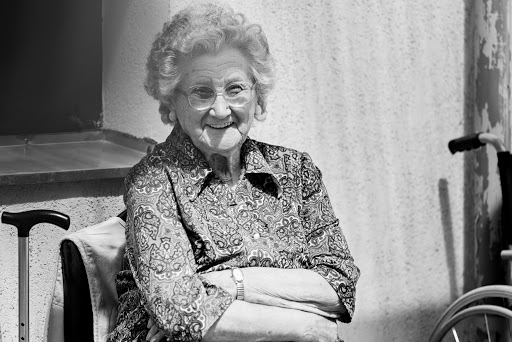Story by Al Batt (Author)
My mother was a fine woman. She really was. No matter how poorly she felt, no matter how tough a day she was having, if you asked her how she was, she would answer, “Fine.” Mother had not had an easy life. Her German-immigrant father had died when she was 15. She had to quit school in order to work full time to help support the family. She often told me that she had learned at the tender age of 15 that life isn’t always going to give you what you want, so you’d better make the best out of whatever you get. She never failed to maintain a great attitude and she refused to let others be unhappy.
Mom had a stroke when she was in her seventies that forced her to give up some of her independence and move in with my family and me. She had to give up driving and shopping-two things she dearly loved to do. All the while she was living with us, if anyone ever asked her how she was doing, she responded with a believable, “Fine.”
One day, while having soup with my son, Brian, and me, my mother had a second stroke. This one robbed her of most of her eyesight and mobility. The doctor told my siblings and me that she required more care than my family could provide. Once she was released from the hospital, Mom went into a nursing home. She would not only never go home to her own house again, she would never move back into mine. I visited her almost daily and each day I would ask her how she was doing. She never failed to answer with a smile and a “Fine.” Mom had long ago learned that the secret to living happily ever after was to do it one smile at a time.
One day as I entered the front door of the nursing home, I sensed that something wasn’t right. The nurse at my mother’s station motioned me over near her and told me that the administrator of the home wanted to talk to me. I worried as I walked to his office. My mother had been called into the administrator’s office of my school on several occasions while I was growing up. It was never because of good news then and I didn’t expect it would be now. The administrator stood as I entered his office and shook my hand. He asked how I was. I told him that I would let him know after I found out what he needed to talk to me about. He informed me that an Alzheimer’s patient had believed that my mother was her child-her misbehaving child. This woman did not believe in sparing the rod. Before any of the staff could stop her, the other woman had slapped my mother a number of times. I thought about my mother being attacked by another person. My mother who had never spanked me even once. My mother who would be unable to defend herself or even see who her attacker was. I could only imagine how frightened she must have been by this unprovoked violence. I grew very angry. I had helped put her into this facility because it was supposed be the best place for her, not so others could batter her. I asked where my mother was. Learning that she was in her room, I angrily left the administrator’s office and ran to my mother’s room. I’ll never forget what I saw. There she sat in her wheelchair, all alone in her small room that suddenly seemed so big. I walked quietly to her side. Her face was already swollen and black-and-blue with bruises. My eyes filled with tears. I felt equal amounts of sadness and anger. I wanted to scream in outrage because something like this could have happened to my mother who I loved so much and who had never hurt anyone. I forced out a “Hi, Mom, how are you?” My mother smiled in my direction and said, “Fine.” My anger and my sadness all but vanished. If my mother could smile and feel fine while confined to a wheelchair and living in a darkened world, how could I be anything else? If she could forgive, so would I. By forgiving, I felt a peace come over me.
“How are you, Allen?” asked my mother, her smile refusing to fade.
“I’m fine,” I said.





